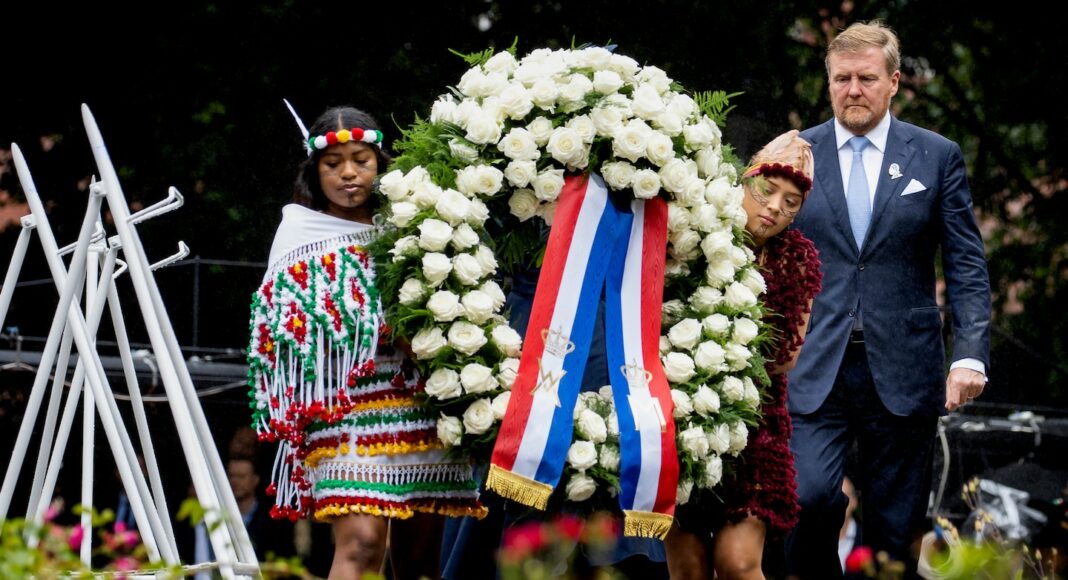Ειδήσεις Ελλάδα
Comment on this storyComment
King Willem-Alexander of the Netherlands apologized for his country’s role in colonial slave trading, amid a national reckoning over the brutal history of Dutch imperialism, whose legacy still echoes in contemporary society.
“Of all the ways in which a person can be robbed of their freedom, slavery is surely the most painful. The most degrading. The most inhuman,” said the monarch on Slavery Remembrance Day, which takes place in the Netherlands on July 1 to mark the abolition of the practice in Suriname and the former Dutch Caribbean.
“Today, as your King and as a member of the government, I make this apology myself. And I feel the weight of the words in my heart and my soul,” he said.
The Dutch colonial empire stretched from Suriname in South America, to South Africa and Indonesia in Southeast Asia. The government has acknowledged that for more than 300 years, Dutch slave traders abducted and shipped hundreds of thousands of adults and children from Africa to work on plantations as enslaved laborers. Some 75,000 did not survive the journey to the colonies, where Indigenous people there were also enslaved.
Slavery was officially abolished in Suriname and the Caribbean islands in 1863, but it did not practically end until 10 years later.
Dutch prime minister apologizes for centuries of slave trade
Willem-Alexander, 56, also acknowledged the role his ancestors in the House of Orange-Nassau played in slavery’s history, saying they did nothing to stop “crimes against humanity.”
The royal apology was hailed as “historic” by Sylvana Simons, a left-wing lawmaker of Surinamese origin. The tide is turning, she said on Twitter.
The king’s apology comes on the heels of other steps taken by the Netherlands, which many activists and scholars have criticized for not doing enough to confront historical injustices and address institutional racism. The country has a population of about 17.5 million people, of which about a quarter are immigrants or the children of immigrants.
In December, Willem-Alexander commissioned a three-year study on the role of the monarchy in Dutch colonial history to be carried out by historians and a rights expert. Prime Minister Mark Rutte has also apologized on behalf of the government to enslaved people in the past and their descendants. The Netherlands recently issued a $218 million grant to increase cultural awareness about the institution of slavery.
On Saturday, Willem-Alexander noted that some Dutch citizens believe that an apology in 2023 for wrongs carried out more than a century ago was “going too far.” In a 2019 YouGov survey on European and Japanese attitudes toward their imperial histories, half of respondents in the Netherlands — more than any other country — said their former empire was more something to be proud of than ashamed about.
The debate over whether to apologize for imperialism and slavery has been thorny in other European countries, too. In 2020, King Philippe of Belgium expressed his “deepest regrets” for the country’s bloody colonization of the Democratic Republic of Congo but stopped short of apologizing.
Last year, King Charles III expressed his “personal sorrow” about slavery. He was also called upon to apologize for British imperialism in the run-up to his May coronation. Some lawmakers have also pushed for London to pay reparations for slavery, though Prime Minister Rishi Sunak has rejected those calls.
“A true reckoning of colonial crimes, including slavery and other forms of exploitation, requires reparations that serve as a form of accountability and acknowledge the impacts of colonialism today,” Human Rights Watch said in December.



